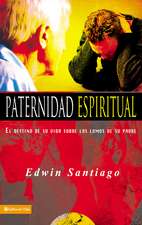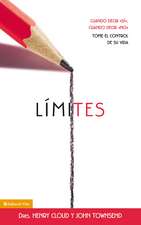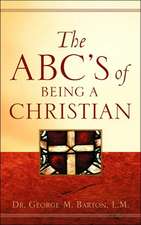Having a Mary Heart in a Martha World
Autor Joanna Weaveren Limba Engleză Paperback – 17 iul 2000
An invitation for every woman who feels she isn't godly enough...isn't loving enough...isn't doing enough
The life of a woman today isn't really all that different from that of Mary and Martha in the New Testament. Like Mary, you long to sit at the Lord's feet...but the daily demands of a busy world just won't leave you alone. Like Martha, you love Jesus and really want to serve him...yet you struggle with weariness, resentment, and feelings of inadequacy.
Then comes Jesus, right into the midst of your busy Mary/Martha life-and he extends the same invitation he issued long ago to the two sisters of Bethany. Tenderly he invites you to choose "the better part"-a joyful life of "living-room" intimacy with him that flows naturally into "kitchen service" for him.
How can you make that choice? With her fresh approach to the familiar Bible story and its creative, practical strategies, Joanna shows how all of us-Marys and Marthas alike-can draw closer to our Lord, deepening our devotion, strengthening our service, and doing both with less stress and greater joy.
Preț: 95.10 lei
Nou
Puncte Express: 143
Preț estimativ în valută:
18.20€ • 18.100$ • 15.06£
18.20€ • 18.100$ • 15.06£
Carte disponibilă
Livrare economică 14-28 martie
Preluare comenzi: 021 569.72.76
Specificații
ISBN-13: 9781578562589
ISBN-10: 1578562589
Pagini: 256
Dimensiuni: 152 x 226 x 18 mm
Greutate: 0.32 kg
Editura: Waterbrook Press
ISBN-10: 1578562589
Pagini: 256
Dimensiuni: 152 x 226 x 18 mm
Greutate: 0.32 kg
Editura: Waterbrook Press
Notă biografică
Joanna Weaver is the best-selling author of Having a Mary Heart in a Martha World, Having a Mary Spirit, Lazarus Awakening, and the award-winning gift book With This Ring. Her articles have appeared in such publications as Focus on the Family, Guideposts, and HomeLife. Joanna and her pastor-husband, John, have three children and live in Montana. Visit her website at www.JoannaWeaverBooks.com.
Extras
Chapter 1: A Tale of Two Sisters
As Jesus and his disciples were on their way, he came to a village where a woman named Martha opened her home to him. She had a sister called Mary, who sat at the Lord’s feet listening to what he said.
LUKE 10 : 3 8 - 3 9
Have you ever tried to do it all?
I have, I do, and I probably always will. It’s not only in my nature; it’s also in my job description–and yours, too. Being a woman requires more stamina, more creativity, and more wisdom than I ever dreamed as a young girl. And that’s not just true for today’s busy women. It has always been the case.
In 1814, Martha Forman was married to a wealthy Maryland plantation owner. You might expect she spent her days sipping tea, being fitted for lovely gowns, and giving orders to her servants as she chatted with important guests. Instead, Martha worked right beside her servants from four in the morning to eleven o’clock at night. Among her daily activities were the following:
Making thirty to thirty-four pounds of old tallow into candles; cutting out fourteen shirts, jackets or trousers for the slaves (whom she always called “the people” or “our family”); knitting stockings; washing; dyeing and spinning wool; baking mince pies and potato puddings; sowing wheat or reaping it; killing farm animals and salting the meat; planting
or picking fruits and vegetables; making jams, jellies, and preserves with her fruit; helping whitewash or paint walls; ironing; preparing for large parties; caring for sick family and slaves.
So, what did you do today? You may not have slaughtered a hog or harvested wheat, but I know you were busy. Whether you were out selling real estate or at home kissing boo-boos (or both), your day passed just as quickly. And your mind and body are probably as tired as poor Martha Forman’s as you steal a few moments to spend with this book.
Having a Mary Heart in a Martha World. The thought intrigues you. Deep inside of you there is a hunger, a calling, to know and love God. To truly know Jesus Christ and the fellowship of the Spirit. You’re not after more head knowledge– it’s heart-to-heart intimacy you long for.
Yet a part of you hangs back. Exhausted, you wonder how to find the strength or time. Nurturing your spiritual life seems like one more duty–one more thing to add to a life that is spilling over with responsibilities. It’s almost as if you’re standing on the bottom rung of a ladder that stretches up to heaven. Eager but daunted, you name the rungs with spiritual things you know you should do: study the Bible, pray, fellowship…
“He’s up there somewhere,” you say, swaying slightly as you peer upward, uncertain how to begin or if you even want to attempt the long, dizzy climb. But to do nothing means you will miss what your heart already knows: There is more to this Christian walk than you’ve experienced. And you’re just hungry enough–just desperate enough–to want it all.
A TALE OF TWO SISTERS
Perhaps no passage of Scripture better describes the conflict we feel as women than the one we find in the gospel of Luke. Just mention the names Mary and Martha around a group of Christian women and you’ll get knowing looks and nervous giggles. We’ve all felt the struggle. We want to worship like Mary, but the Martha inside keeps bossing us around.
Here’s a refresher course in case you’ve forgotten the story. It’s found in Luke. It’s the tale of two sisters. It’s the tale of you and me. As Jesus and his disciples were on their way, he came to a village where a woman named Martha opened her home to him. She had a sister called Mary, who sat at the Lord’s feet listening to what he said. But Martha was distracted by all the preparations that had to be made. She came to him and asked, “Lord, don’t you care that my sister has left me to do the work by myself? Tell her to help me!”
“Martha, Martha,” the Lord answered, “you are worried and upset about many things, but only one thing is needed. Mary has chosen what is better, and it will not be taken away from her.” (10:38-42)
A MARTHA WORLD
When I read the first part of Mary and Martha’s story, I must admit I find myself cheering for Martha. I know we tend to sing Mary’s praises in Bible studies. But Martha, to be honest, appeals more to my perfectionist tendencies. What a woman! She opens her home to a band of thirteen hungry men, possibly more. What a hostess! She doesn’t whip up an impromptu casserole of Kraft macaroni and cheese and Ballpark franks as I’ve been known to do on occasion.
Not her! She is the original Martha Stewart, the New Testament’s Proverbs 31 woman, and Israel’s answer to Betty Crocker. Or at least that’s the way I imagine her. She’s the Queen of the Kitchen–and the rest of the house as well.
And Luke’s story starts with Martha in her glory. After all, this is Jesus. She scraps her ordinary everyday menu of soup and bread and pulls out all her cookbooks. This, she decides, will be a banquet fit for a messiah. For the Messiah. Martha sends one servant to the field to slaughter a lamb, another to the market to pick up a few of those luscious pomegranates she saw yesterday. Like a military general, she barks commands to her kitchen staff. Soak the lentils! Pound the grain! Knead the dough!
So many things to do and so little time. She must make sure the centerpiece and the napkins match, that the servant pours the wine from the right and not the left. Martha’s mind is as busy as a room filled with kindergartners. What would be just right for dessert? A little goat cheese with a tray of fresh fruit? Will Jesus and his followers stay overnight? Someone must change the sheets and fold some towels.
“Where’s Mary? Has anyone seen Mary?” she asks a servant scurrying by. If Mary changed the sheets, Martha might have time to fashion an ark from the cheese and carve the fruit into little animals marching two by two. Productions of this magnitude require the skill of a master planner. And Martha’s an administrator extraordinaire–a whirling dervish of efficiency, with a touch of Tasmanian she-devil thrown in to motivate the servants.
I happen to be the oldest in my family. Perhaps that’s why I understand how frustrated Martha must have felt when she finally found Mary. The entire household is in an uproar, busy making ready to entertain the most famous teacher of their day, the man most likely to become the next king of Israel. I can relate to the anger that boils up inside of Martha at the sight of her lazy sibling sitting at the Master’s feet in the living room.
It’s simply too much. With everything still left to do, there sits little Mary, being quite contrary, crashing a party meant only for men. But worse, she seems oblivious to all of Martha’s gesturing from the hall.
Martha tries clearing her throat. She even resorts to her most effective tool: the “evil eye,” famous for stopping grown men in their tracks. But nothing she does has any effect on her baby sister. Mary only has eyes for Jesus.
Pushed to the limit, Martha does something unprecedented. She interrupts the boys’ club, certain that Jesus will take her side. After all, a woman’s place is in the kitchen. Her sister, Mary, should be helping prepare the meal. Martha realizes there is a cutting edge to her voice, but Jesus will understand. He, of all people, knows what it’s like to carry the weight of the world.
Now of course, you won’t find all that in the Bible. Luke tends to downplay the whole story, dedicating only four verses to an event that was destined to change Martha’s life forever. And mine as well. And yours, if you will let the simple truth of this passage soak deep into your heart.
Instead of applauding Martha, Jesus gently rebukes her, telling her Mary has chosen “what is better.” Or, as another translation puts it, “Mary has chosen the better part” (NRSV). “The better part?” Martha must have echoed incredulously. “The better part!” I say to God in the midst of my own whirl of activity. “You mean there’s more? I have to do more?”
No, no, comes the answer to my tired heart. Jesus’ words in Luke 10 are incredibly freeing to those of us on the performance treadmill of life. It isn’t “more” he requires of us.
In fact, it may be less.
A MARY HEART
The Bible doesn’t tell us a lot about Mary and Martha. They are mentioned by name only three times in Scripture: Luke 10:38-42, John 11:1-44, and John 12:1-11. But from these brief accounts, a fascinating picture develops of what life must have been like at the house in Bethany–and what life is often like for us.
They say variety is the spice of life. Perhaps that’s why God so often puts people of such different personalities in the same family. (Either that, or he’s trying to prepare us for marriage!) Mary was the sunlight to Martha’s thunder. She was the caboose to Martha’s locomotive. Mary’s bent was to meander through life, pausing to smell the roses. Martha was more likely to pick the roses, quickly cut the stems at an angle, and arrange them in a vase with baby’s breath and ferns.
That is not to say one is right and one is wrong. We are all different, and that is just as God made us to be. Each gifting and personality has its own strengths and weaknesses, its glories and temptations.
I find it interesting that when Jesus corrected Martha, he didn’t say, “Why can’t you be more like your sister, Mary?” He knew Martha would never be Mary, and Mary would never be Martha. But when the two were faced with the same choice–to work or to worship–Jesus said, “Mary has chosen the better part.”
To me, this implies the Better Part was available to both Mary and Martha.
And it’s available to each one of us, regardless of our gifting or personality. It’s a choice we each can make.
It is true that, personality-wise, the choice may have come easier to Mary than it did to Martha. Mary does seem more mellow by nature, more prone to walk in the dew of the morning than to get caught up in the “dos” of the day.
I’m sure when Jesus dropped by unexpectedly that afternoon, Mary probably began the visit by serving, just as she had many times before. I can see her taking walking staffs and sleeping rolls as the disciples spill into her sister’s well-ordered home. Buried beneath cloaks and backpacks, she watches the man who has taken the heart of Israel captive by his words. There is such joy and winsomeness about him, she can’t help but be drawn to this man.
Could Jesus be the Messiah the people say he is? Mary wonders. She knows he’s a great teacher, but could this actually be the Son of God admiring the tapestry she wove, drawing her out of her shyness and into the circle of his closest friends?
She drops the disciples’ belongings in a corner and hurries to pour wine for the thirsty crew. There is an ease about them, a true camaraderie. The men laugh at each other’s jokes as they wash down the dust of the road with the liquid she provides. Then they settle on low couches around the room, and Jesus begins to teach.
He speaks as none she ever heard before. There is a magnetism about his words, as though they contain breath and life–breath and life Mary hasn’t known she needed until this day. She creeps closer and stands in a dark corner listening to Jesus, her arms wrapped around the empty pitcher.
She’s aware of movement around her. Several servants busy themselves washing dirty feet, while another sets the table at the other end of the room for the meal to come. Mary knows there is plenty to do. And yet she is unable to move–except closer.
It isn’t customary for a woman to sit with a group of men, but his words welcome her. Despite her natural reticence, she gradually moves forward until she’s kneeling at his feet. His teaching envelops her, revealing truth to her hungry heart.
The Bible isn’t clear whether or not this was Jesus’ first visit to the home in Bethany. Martha’s openness with Christ seems to indicate a prior acquaintance, but whatever the case, this day Mary chose to let someone else do the serving so she could do some listening. It isn’t every day God visits your house. So she ignores tradition, she breaks social etiquette, and she presses closer. As close to Jesus as possible. It doesn’t matter that she might be misunderstood. She cares little that the disciples look at her strangely. Somewhere in the distance she hears her name, but it is drowned by the call of her Master. The call to come. The call to listen. And listen she does.
A TALE OF EVERY WOMAN
Against this Bethany backdrop of unexpected guests, I see the struggle I face every day when work and worship collide. Part of me is Mary. I want to worship extravagantly. I want to sit at his feet. But part of me is Martha–and there’s just so much to do!
So many legitimate needs surround me, compelling me to work. I hear God’s tender call to come away, and I respond, “Yes, Lord, I will come.” But then the phone rings, or I’m reminded of the check I was supposed to deposit– yesterday. Suddenly all of my good intentions about worship disappear, swallowed up by what Charles Hummel calls “the tyranny of the urgent.”
“We live in constant tension between the urgent and the important,” Hummel writes. “The problem is that the important task rarely must be done today or even this week. Extra hours of prayer and Bible study can wait. But the urgent tasks call for instant action–endless demands pressure every hour and day.”
Does that sound familiar? It does to me. The twenty-four hours allotted to each day rarely stretch far enough to meet all the obligations I face. I have a household to run, a husband to love, children to care for, and a dog to feed. I have church commitments, writing deadlines, lunch engagements to keep. And very little of this is what I would call deadwood. Long ago I tried to cut out what I thought was extraneous. This is my life–and the hours are packed full.
Not long ago, Today’s Christian Woman magazine sponsored a survey of more than a thousand Christian women. Over 60 percent indicated they work full time outside the home.3 Add housework and errands to a forty-hour-a-week career, and you have a recipe for weariness. Women who choose to stay at home find their lives just as full. Chasing toddlers, carpooling to soccer, volunteering at school, baby-sitting the neighbor kids–life seems hectic at every level.
So where do we find the time to follow Mary to the feet of Jesus? Where do we find the energy to serve him? How do we choose the Better Part and still get done what really has to get done?
Jesus is our supreme example. He was never in a hurry. He knew who he was and where he was going. He wasn’t held hostage to the world’s demands or even its desperate needs. “I only do what the Father tells me to do,” Jesus told his disciples. Someone has said that Jesus went from place of prayer to place of prayer and did miracles in between. How incredible to be so in tune with God that not one action is wasted, not one word falls to the ground!
That is the intimacy that Jesus invites us to share. He invites us to know him, to see him so clearly that when we look upon him, we see the face of God as well.
Just as he welcomed Mary to sit at his feet in the living room, just as he invited Martha to leave the kitchen for a while and share in the Better Part, Jesus bids us to come.
In obedience to his invitation, we find the key to our longings, the secret to living beyond the daily pressures that would otherwise tear us apart. For as we learn what it means to choose the Better Part of intimacy with Christ, we begin to be changed.
This is no cookie-cutter conversion. This is a Savior who accepts us just the way we are–Mary or Martha or a combination of both–but loves us too much to leave us that way. He is the one who can give us a Mary heart in a Martha world.
This transformation is exactly what we see in the continuing stories of Mary and Martha in the Gospels. Martha, as we will discover, doesn’t lay aside her personality, give up her hobbies, and burn her cookbooks in order to worship Jesus.
She doesn’t try to mimic Mary the Little Lamb; she simply obeys. She receives Jesus’ rebuke and learns that while there is a time for work, there is also a time for worship. The Martha we see later in the Gospels is no longer frantic and resentful, but full of faith and trust. The kind of faith and trust that come only from spending time at Jesus’ feet.
Mary does some changing too. For although her contemplative nature makes her a natural worshiper, it also leaves her vulnerable to despair, as we’ll see later in the Gospels. When disaster strikes, Mary’s tendency is to be swamped with sorrow and paralyzed with questions. But in the end, when she realizes Jesus’ time is short, Mary puts into action what she has learned in worship. She steps forward and seizes the opportunity to serve both beautifully and sacrificially.
That’s what I see in the biblical portraits of the two sisters of Bethany. Two completely different women undergo a transformation right before our eyes: a holy makeover. The bold one becomes meek, the mild one courageous. For it is impossible to be in the presence of Jesus and not be changed.
As you read the following chapters, I pray you will allow the Holy Spirit access to all the hidden corners of your life. Whether you tend to be a bit driven, like Martha, or more contemplative, like Mary, God is calling you to intimacy with him through Jesus Christ. The choice he offered to these two very different sisters–and the transformation they experienced–is exactly what he offers to each of us as well.
FIRST THINGS FIRST
The Living Room Intimacy Mary enjoyed with Jesus will never come out of the busyness of Martha’s Kitchen. Busyness, by itself, breeds distraction. Luke 10:38 shows us a woman with the gift of hospitality. Martha opened her home to Jesus, but that doesn’t automatically mean she opened her heart. In her eagerness to serve Jesus, she almost missed the opportunity to know Jesus.
Luke tells us that “Martha was distracted by all the preparations that had to be made.” Key word: had. In Martha’s mind, nothing less than the very best would do. She had to go all out for Jesus. We can get caught in the same performance trap, feeling as though we must prove our love for God by doing great things for him. So we rush past the intimacy of the Living Room to get busy for him in the Kitchen–implementing great ministries and wonderful projects, all in an effort to spread the good news. We do all our works in his name. We call him “Lord, Lord.” But in the end, will he know us? Will we know him?
The kingdom of God, you see, is a paradox. While the world applauds achievement, God desires companionship. The world clamors, “Do more! Be all that you can be!” But our Father whispers, “Be still and know that I am God.”
He isn’t looking as much for workers as he is looking for sons and daughters–a people to pour his life into. Because we are his children, Kitchen Service will be the natural result of
Living Room Intimacy with God. Like Jesus, we must be about our Father’s business. The closer we draw to the heart of the Father, the more we see his heart for the world. And so we serve, we minister, and we love, knowing that when we do it to “the least of these,” we have done it unto Christ.
When we put work before worship, we put the cart before the horse. The cart is important; so is the horse. But the horse must come first, or we end up pulling the cart ourselves. Frustrated and weary, we can nearly break under the pressure of service, for there is always something that needs to be done.
When we first spend time in his presence–when we take time to hear his voice–God provides the horsepower we need to pull the heaviest load. He saddles up Grace and invites us to take a ride.
THE CALL
I’ll never forget crying in the darkness one night many years ago. My husband was an associate pastor at a large church, and our lives were incredibly busy.
Carrying a double portfolio of music and Christian education meant we worked long hours on project after project, and the size of the church meant there were always people in need. I would go to bed at night worried about the people who had slipped through the cracks–the marriages in trouble, the children in crisis. I worried about all the things I didn’t accomplish and should have, about all the things I’d accomplished, but not very well.
I remember clinging to my husband that night and sobbing as he tried to comfort me. “What’s wrong, honey?” he asked, caressing my hair. But I couldn’t explain. I was completely overwhelmed. The only thing that came out between sobs was a broken plea, “Tell me the good news,” I begged him. “I honestly can’t remember… Tell me the good news.”
Perhaps you have felt the same way. You’ve known the Lord your whole life, and yet you haven’t found the peace and fulfillment you’ve always longed for. So you’ve stepped up the pace, hoping that in offering more service, somehow you will merit more love. You volunteer for everything: you sing in the choir, you teach Sunday school, you host Backyard Bible Club, you visit the nursing home weekly. And yet you find yourself staring into the night and wondering if this is all there is.
Or perhaps you’ve withdrawn from service. You’ve gone the route I’ve described above and, frankly, you’ve had it. You’ve stopped volunteering, stopped saying yes. No one calls anymore. No one asks anymore. You’re out of the loop and glad for it. And yet the peace and quiet holds no peace and quiet. The stillness hasn’t led to the closer walk with God you’d hoped for, just a sense of resentment.
Your heart feels leaden and cold. You go to church; you go through the motions of worship, then leave and go home the same. And at night, sometimes you wonder, “What is the good news? Can someone tell me? I can’t remember.”
THE GOOD NEWS
The good news is woven through the New Testament in a grace-filled strand that shines especially bright in the Gospel stories of Mary and Martha. The message is this: Salvation isn’t about what I do; it’s about what Jesus did.
The Cross did more than pay for my sins; it set me free from the bondage of the “shoulds” and “if onlys” and “what might have beens.” And Jesus’ words to Martha are the words he wants to speak to your heart and mine: “You are worried and upset about many things, but only one thing is needed.”
The “one thing” is not found in doing more. It’s found by sitting at his feet. Catch that: Mary sat at his feet. She didn’t move a muscle. She listened. She didn’t come up with clever responses or a doctrinal thesis. Her gift was availability. (In the end, I believe that was Martha’s gift as well.)
The only requirement for a deeper friendship with God is showing up with a heart open and ready to receive. Jesus said: “Come to me, all you who are weary and burdened, and I will give you rest. Take my yoke upon you and learn from me, for I am gentle and humble in heart, and you will find rest for your souls” (Matthew 11:28-29).
Jesus invites us to come and rest, to spend time with him in this incredible Living Room Intimacy. Intimacy that allows us to be honest in our complaints, bold in our approach, and lavish in our love. Intimacy that allows us to hear our Father’s voice and discern our Father’s will. Intimacy that so fills us with his love and his nature that it spills out to our dry, thirsty world in Kitchen Service. In the Living Room. That’s where it all begins. Down at his feet.
An Invitation
Perhaps, like Martha, you never knew you could enter into Living Room Intimacy with God. But that is exactly what Jesus Christ came to do. His death and resurrection made a way for each of us to be reconciled to God. But the gift of salvation he offers is just that–a gift. And a gift must be received.
You can receive this marvelous gift by praying this simple prayer:
Dear Lord Jesus,
I do believe you are the Son of God and that you died on the cross to pay the penalty for my sin. Please come into my life, forgive my sin, and make me a member of your family. I now turn from going my own way. I want you to be the center of my life.
Thank you for your gift of eternal life and for your Holy Spirit, who has now come to live in me. I ask this in your name. Amen.
Jesus answered, “I am the way and the truth and the life.
No one comes to the Father except through me.”
John 14:6
As Jesus and his disciples were on their way, he came to a village where a woman named Martha opened her home to him. She had a sister called Mary, who sat at the Lord’s feet listening to what he said.
LUKE 10 : 3 8 - 3 9
Have you ever tried to do it all?
I have, I do, and I probably always will. It’s not only in my nature; it’s also in my job description–and yours, too. Being a woman requires more stamina, more creativity, and more wisdom than I ever dreamed as a young girl. And that’s not just true for today’s busy women. It has always been the case.
In 1814, Martha Forman was married to a wealthy Maryland plantation owner. You might expect she spent her days sipping tea, being fitted for lovely gowns, and giving orders to her servants as she chatted with important guests. Instead, Martha worked right beside her servants from four in the morning to eleven o’clock at night. Among her daily activities were the following:
Making thirty to thirty-four pounds of old tallow into candles; cutting out fourteen shirts, jackets or trousers for the slaves (whom she always called “the people” or “our family”); knitting stockings; washing; dyeing and spinning wool; baking mince pies and potato puddings; sowing wheat or reaping it; killing farm animals and salting the meat; planting
or picking fruits and vegetables; making jams, jellies, and preserves with her fruit; helping whitewash or paint walls; ironing; preparing for large parties; caring for sick family and slaves.
So, what did you do today? You may not have slaughtered a hog or harvested wheat, but I know you were busy. Whether you were out selling real estate or at home kissing boo-boos (or both), your day passed just as quickly. And your mind and body are probably as tired as poor Martha Forman’s as you steal a few moments to spend with this book.
Having a Mary Heart in a Martha World. The thought intrigues you. Deep inside of you there is a hunger, a calling, to know and love God. To truly know Jesus Christ and the fellowship of the Spirit. You’re not after more head knowledge– it’s heart-to-heart intimacy you long for.
Yet a part of you hangs back. Exhausted, you wonder how to find the strength or time. Nurturing your spiritual life seems like one more duty–one more thing to add to a life that is spilling over with responsibilities. It’s almost as if you’re standing on the bottom rung of a ladder that stretches up to heaven. Eager but daunted, you name the rungs with spiritual things you know you should do: study the Bible, pray, fellowship…
“He’s up there somewhere,” you say, swaying slightly as you peer upward, uncertain how to begin or if you even want to attempt the long, dizzy climb. But to do nothing means you will miss what your heart already knows: There is more to this Christian walk than you’ve experienced. And you’re just hungry enough–just desperate enough–to want it all.
A TALE OF TWO SISTERS
Perhaps no passage of Scripture better describes the conflict we feel as women than the one we find in the gospel of Luke. Just mention the names Mary and Martha around a group of Christian women and you’ll get knowing looks and nervous giggles. We’ve all felt the struggle. We want to worship like Mary, but the Martha inside keeps bossing us around.
Here’s a refresher course in case you’ve forgotten the story. It’s found in Luke. It’s the tale of two sisters. It’s the tale of you and me. As Jesus and his disciples were on their way, he came to a village where a woman named Martha opened her home to him. She had a sister called Mary, who sat at the Lord’s feet listening to what he said. But Martha was distracted by all the preparations that had to be made. She came to him and asked, “Lord, don’t you care that my sister has left me to do the work by myself? Tell her to help me!”
“Martha, Martha,” the Lord answered, “you are worried and upset about many things, but only one thing is needed. Mary has chosen what is better, and it will not be taken away from her.” (10:38-42)
A MARTHA WORLD
When I read the first part of Mary and Martha’s story, I must admit I find myself cheering for Martha. I know we tend to sing Mary’s praises in Bible studies. But Martha, to be honest, appeals more to my perfectionist tendencies. What a woman! She opens her home to a band of thirteen hungry men, possibly more. What a hostess! She doesn’t whip up an impromptu casserole of Kraft macaroni and cheese and Ballpark franks as I’ve been known to do on occasion.
Not her! She is the original Martha Stewart, the New Testament’s Proverbs 31 woman, and Israel’s answer to Betty Crocker. Or at least that’s the way I imagine her. She’s the Queen of the Kitchen–and the rest of the house as well.
And Luke’s story starts with Martha in her glory. After all, this is Jesus. She scraps her ordinary everyday menu of soup and bread and pulls out all her cookbooks. This, she decides, will be a banquet fit for a messiah. For the Messiah. Martha sends one servant to the field to slaughter a lamb, another to the market to pick up a few of those luscious pomegranates she saw yesterday. Like a military general, she barks commands to her kitchen staff. Soak the lentils! Pound the grain! Knead the dough!
So many things to do and so little time. She must make sure the centerpiece and the napkins match, that the servant pours the wine from the right and not the left. Martha’s mind is as busy as a room filled with kindergartners. What would be just right for dessert? A little goat cheese with a tray of fresh fruit? Will Jesus and his followers stay overnight? Someone must change the sheets and fold some towels.
“Where’s Mary? Has anyone seen Mary?” she asks a servant scurrying by. If Mary changed the sheets, Martha might have time to fashion an ark from the cheese and carve the fruit into little animals marching two by two. Productions of this magnitude require the skill of a master planner. And Martha’s an administrator extraordinaire–a whirling dervish of efficiency, with a touch of Tasmanian she-devil thrown in to motivate the servants.
I happen to be the oldest in my family. Perhaps that’s why I understand how frustrated Martha must have felt when she finally found Mary. The entire household is in an uproar, busy making ready to entertain the most famous teacher of their day, the man most likely to become the next king of Israel. I can relate to the anger that boils up inside of Martha at the sight of her lazy sibling sitting at the Master’s feet in the living room.
It’s simply too much. With everything still left to do, there sits little Mary, being quite contrary, crashing a party meant only for men. But worse, she seems oblivious to all of Martha’s gesturing from the hall.
Martha tries clearing her throat. She even resorts to her most effective tool: the “evil eye,” famous for stopping grown men in their tracks. But nothing she does has any effect on her baby sister. Mary only has eyes for Jesus.
Pushed to the limit, Martha does something unprecedented. She interrupts the boys’ club, certain that Jesus will take her side. After all, a woman’s place is in the kitchen. Her sister, Mary, should be helping prepare the meal. Martha realizes there is a cutting edge to her voice, but Jesus will understand. He, of all people, knows what it’s like to carry the weight of the world.
Now of course, you won’t find all that in the Bible. Luke tends to downplay the whole story, dedicating only four verses to an event that was destined to change Martha’s life forever. And mine as well. And yours, if you will let the simple truth of this passage soak deep into your heart.
Instead of applauding Martha, Jesus gently rebukes her, telling her Mary has chosen “what is better.” Or, as another translation puts it, “Mary has chosen the better part” (NRSV). “The better part?” Martha must have echoed incredulously. “The better part!” I say to God in the midst of my own whirl of activity. “You mean there’s more? I have to do more?”
No, no, comes the answer to my tired heart. Jesus’ words in Luke 10 are incredibly freeing to those of us on the performance treadmill of life. It isn’t “more” he requires of us.
In fact, it may be less.
A MARY HEART
The Bible doesn’t tell us a lot about Mary and Martha. They are mentioned by name only three times in Scripture: Luke 10:38-42, John 11:1-44, and John 12:1-11. But from these brief accounts, a fascinating picture develops of what life must have been like at the house in Bethany–and what life is often like for us.
They say variety is the spice of life. Perhaps that’s why God so often puts people of such different personalities in the same family. (Either that, or he’s trying to prepare us for marriage!) Mary was the sunlight to Martha’s thunder. She was the caboose to Martha’s locomotive. Mary’s bent was to meander through life, pausing to smell the roses. Martha was more likely to pick the roses, quickly cut the stems at an angle, and arrange them in a vase with baby’s breath and ferns.
That is not to say one is right and one is wrong. We are all different, and that is just as God made us to be. Each gifting and personality has its own strengths and weaknesses, its glories and temptations.
I find it interesting that when Jesus corrected Martha, he didn’t say, “Why can’t you be more like your sister, Mary?” He knew Martha would never be Mary, and Mary would never be Martha. But when the two were faced with the same choice–to work or to worship–Jesus said, “Mary has chosen the better part.”
To me, this implies the Better Part was available to both Mary and Martha.
And it’s available to each one of us, regardless of our gifting or personality. It’s a choice we each can make.
It is true that, personality-wise, the choice may have come easier to Mary than it did to Martha. Mary does seem more mellow by nature, more prone to walk in the dew of the morning than to get caught up in the “dos” of the day.
I’m sure when Jesus dropped by unexpectedly that afternoon, Mary probably began the visit by serving, just as she had many times before. I can see her taking walking staffs and sleeping rolls as the disciples spill into her sister’s well-ordered home. Buried beneath cloaks and backpacks, she watches the man who has taken the heart of Israel captive by his words. There is such joy and winsomeness about him, she can’t help but be drawn to this man.
Could Jesus be the Messiah the people say he is? Mary wonders. She knows he’s a great teacher, but could this actually be the Son of God admiring the tapestry she wove, drawing her out of her shyness and into the circle of his closest friends?
She drops the disciples’ belongings in a corner and hurries to pour wine for the thirsty crew. There is an ease about them, a true camaraderie. The men laugh at each other’s jokes as they wash down the dust of the road with the liquid she provides. Then they settle on low couches around the room, and Jesus begins to teach.
He speaks as none she ever heard before. There is a magnetism about his words, as though they contain breath and life–breath and life Mary hasn’t known she needed until this day. She creeps closer and stands in a dark corner listening to Jesus, her arms wrapped around the empty pitcher.
She’s aware of movement around her. Several servants busy themselves washing dirty feet, while another sets the table at the other end of the room for the meal to come. Mary knows there is plenty to do. And yet she is unable to move–except closer.
It isn’t customary for a woman to sit with a group of men, but his words welcome her. Despite her natural reticence, she gradually moves forward until she’s kneeling at his feet. His teaching envelops her, revealing truth to her hungry heart.
The Bible isn’t clear whether or not this was Jesus’ first visit to the home in Bethany. Martha’s openness with Christ seems to indicate a prior acquaintance, but whatever the case, this day Mary chose to let someone else do the serving so she could do some listening. It isn’t every day God visits your house. So she ignores tradition, she breaks social etiquette, and she presses closer. As close to Jesus as possible. It doesn’t matter that she might be misunderstood. She cares little that the disciples look at her strangely. Somewhere in the distance she hears her name, but it is drowned by the call of her Master. The call to come. The call to listen. And listen she does.
A TALE OF EVERY WOMAN
Against this Bethany backdrop of unexpected guests, I see the struggle I face every day when work and worship collide. Part of me is Mary. I want to worship extravagantly. I want to sit at his feet. But part of me is Martha–and there’s just so much to do!
So many legitimate needs surround me, compelling me to work. I hear God’s tender call to come away, and I respond, “Yes, Lord, I will come.” But then the phone rings, or I’m reminded of the check I was supposed to deposit– yesterday. Suddenly all of my good intentions about worship disappear, swallowed up by what Charles Hummel calls “the tyranny of the urgent.”
“We live in constant tension between the urgent and the important,” Hummel writes. “The problem is that the important task rarely must be done today or even this week. Extra hours of prayer and Bible study can wait. But the urgent tasks call for instant action–endless demands pressure every hour and day.”
Does that sound familiar? It does to me. The twenty-four hours allotted to each day rarely stretch far enough to meet all the obligations I face. I have a household to run, a husband to love, children to care for, and a dog to feed. I have church commitments, writing deadlines, lunch engagements to keep. And very little of this is what I would call deadwood. Long ago I tried to cut out what I thought was extraneous. This is my life–and the hours are packed full.
Not long ago, Today’s Christian Woman magazine sponsored a survey of more than a thousand Christian women. Over 60 percent indicated they work full time outside the home.3 Add housework and errands to a forty-hour-a-week career, and you have a recipe for weariness. Women who choose to stay at home find their lives just as full. Chasing toddlers, carpooling to soccer, volunteering at school, baby-sitting the neighbor kids–life seems hectic at every level.
So where do we find the time to follow Mary to the feet of Jesus? Where do we find the energy to serve him? How do we choose the Better Part and still get done what really has to get done?
Jesus is our supreme example. He was never in a hurry. He knew who he was and where he was going. He wasn’t held hostage to the world’s demands or even its desperate needs. “I only do what the Father tells me to do,” Jesus told his disciples. Someone has said that Jesus went from place of prayer to place of prayer and did miracles in between. How incredible to be so in tune with God that not one action is wasted, not one word falls to the ground!
That is the intimacy that Jesus invites us to share. He invites us to know him, to see him so clearly that when we look upon him, we see the face of God as well.
Just as he welcomed Mary to sit at his feet in the living room, just as he invited Martha to leave the kitchen for a while and share in the Better Part, Jesus bids us to come.
In obedience to his invitation, we find the key to our longings, the secret to living beyond the daily pressures that would otherwise tear us apart. For as we learn what it means to choose the Better Part of intimacy with Christ, we begin to be changed.
This is no cookie-cutter conversion. This is a Savior who accepts us just the way we are–Mary or Martha or a combination of both–but loves us too much to leave us that way. He is the one who can give us a Mary heart in a Martha world.
This transformation is exactly what we see in the continuing stories of Mary and Martha in the Gospels. Martha, as we will discover, doesn’t lay aside her personality, give up her hobbies, and burn her cookbooks in order to worship Jesus.
She doesn’t try to mimic Mary the Little Lamb; she simply obeys. She receives Jesus’ rebuke and learns that while there is a time for work, there is also a time for worship. The Martha we see later in the Gospels is no longer frantic and resentful, but full of faith and trust. The kind of faith and trust that come only from spending time at Jesus’ feet.
Mary does some changing too. For although her contemplative nature makes her a natural worshiper, it also leaves her vulnerable to despair, as we’ll see later in the Gospels. When disaster strikes, Mary’s tendency is to be swamped with sorrow and paralyzed with questions. But in the end, when she realizes Jesus’ time is short, Mary puts into action what she has learned in worship. She steps forward and seizes the opportunity to serve both beautifully and sacrificially.
That’s what I see in the biblical portraits of the two sisters of Bethany. Two completely different women undergo a transformation right before our eyes: a holy makeover. The bold one becomes meek, the mild one courageous. For it is impossible to be in the presence of Jesus and not be changed.
As you read the following chapters, I pray you will allow the Holy Spirit access to all the hidden corners of your life. Whether you tend to be a bit driven, like Martha, or more contemplative, like Mary, God is calling you to intimacy with him through Jesus Christ. The choice he offered to these two very different sisters–and the transformation they experienced–is exactly what he offers to each of us as well.
FIRST THINGS FIRST
The Living Room Intimacy Mary enjoyed with Jesus will never come out of the busyness of Martha’s Kitchen. Busyness, by itself, breeds distraction. Luke 10:38 shows us a woman with the gift of hospitality. Martha opened her home to Jesus, but that doesn’t automatically mean she opened her heart. In her eagerness to serve Jesus, she almost missed the opportunity to know Jesus.
Luke tells us that “Martha was distracted by all the preparations that had to be made.” Key word: had. In Martha’s mind, nothing less than the very best would do. She had to go all out for Jesus. We can get caught in the same performance trap, feeling as though we must prove our love for God by doing great things for him. So we rush past the intimacy of the Living Room to get busy for him in the Kitchen–implementing great ministries and wonderful projects, all in an effort to spread the good news. We do all our works in his name. We call him “Lord, Lord.” But in the end, will he know us? Will we know him?
The kingdom of God, you see, is a paradox. While the world applauds achievement, God desires companionship. The world clamors, “Do more! Be all that you can be!” But our Father whispers, “Be still and know that I am God.”
He isn’t looking as much for workers as he is looking for sons and daughters–a people to pour his life into. Because we are his children, Kitchen Service will be the natural result of
Living Room Intimacy with God. Like Jesus, we must be about our Father’s business. The closer we draw to the heart of the Father, the more we see his heart for the world. And so we serve, we minister, and we love, knowing that when we do it to “the least of these,” we have done it unto Christ.
When we put work before worship, we put the cart before the horse. The cart is important; so is the horse. But the horse must come first, or we end up pulling the cart ourselves. Frustrated and weary, we can nearly break under the pressure of service, for there is always something that needs to be done.
When we first spend time in his presence–when we take time to hear his voice–God provides the horsepower we need to pull the heaviest load. He saddles up Grace and invites us to take a ride.
THE CALL
I’ll never forget crying in the darkness one night many years ago. My husband was an associate pastor at a large church, and our lives were incredibly busy.
Carrying a double portfolio of music and Christian education meant we worked long hours on project after project, and the size of the church meant there were always people in need. I would go to bed at night worried about the people who had slipped through the cracks–the marriages in trouble, the children in crisis. I worried about all the things I didn’t accomplish and should have, about all the things I’d accomplished, but not very well.
I remember clinging to my husband that night and sobbing as he tried to comfort me. “What’s wrong, honey?” he asked, caressing my hair. But I couldn’t explain. I was completely overwhelmed. The only thing that came out between sobs was a broken plea, “Tell me the good news,” I begged him. “I honestly can’t remember… Tell me the good news.”
Perhaps you have felt the same way. You’ve known the Lord your whole life, and yet you haven’t found the peace and fulfillment you’ve always longed for. So you’ve stepped up the pace, hoping that in offering more service, somehow you will merit more love. You volunteer for everything: you sing in the choir, you teach Sunday school, you host Backyard Bible Club, you visit the nursing home weekly. And yet you find yourself staring into the night and wondering if this is all there is.
Or perhaps you’ve withdrawn from service. You’ve gone the route I’ve described above and, frankly, you’ve had it. You’ve stopped volunteering, stopped saying yes. No one calls anymore. No one asks anymore. You’re out of the loop and glad for it. And yet the peace and quiet holds no peace and quiet. The stillness hasn’t led to the closer walk with God you’d hoped for, just a sense of resentment.
Your heart feels leaden and cold. You go to church; you go through the motions of worship, then leave and go home the same. And at night, sometimes you wonder, “What is the good news? Can someone tell me? I can’t remember.”
THE GOOD NEWS
The good news is woven through the New Testament in a grace-filled strand that shines especially bright in the Gospel stories of Mary and Martha. The message is this: Salvation isn’t about what I do; it’s about what Jesus did.
The Cross did more than pay for my sins; it set me free from the bondage of the “shoulds” and “if onlys” and “what might have beens.” And Jesus’ words to Martha are the words he wants to speak to your heart and mine: “You are worried and upset about many things, but only one thing is needed.”
The “one thing” is not found in doing more. It’s found by sitting at his feet. Catch that: Mary sat at his feet. She didn’t move a muscle. She listened. She didn’t come up with clever responses or a doctrinal thesis. Her gift was availability. (In the end, I believe that was Martha’s gift as well.)
The only requirement for a deeper friendship with God is showing up with a heart open and ready to receive. Jesus said: “Come to me, all you who are weary and burdened, and I will give you rest. Take my yoke upon you and learn from me, for I am gentle and humble in heart, and you will find rest for your souls” (Matthew 11:28-29).
Jesus invites us to come and rest, to spend time with him in this incredible Living Room Intimacy. Intimacy that allows us to be honest in our complaints, bold in our approach, and lavish in our love. Intimacy that allows us to hear our Father’s voice and discern our Father’s will. Intimacy that so fills us with his love and his nature that it spills out to our dry, thirsty world in Kitchen Service. In the Living Room. That’s where it all begins. Down at his feet.
An Invitation
Perhaps, like Martha, you never knew you could enter into Living Room Intimacy with God. But that is exactly what Jesus Christ came to do. His death and resurrection made a way for each of us to be reconciled to God. But the gift of salvation he offers is just that–a gift. And a gift must be received.
You can receive this marvelous gift by praying this simple prayer:
Dear Lord Jesus,
I do believe you are the Son of God and that you died on the cross to pay the penalty for my sin. Please come into my life, forgive my sin, and make me a member of your family. I now turn from going my own way. I want you to be the center of my life.
Thank you for your gift of eternal life and for your Holy Spirit, who has now come to live in me. I ask this in your name. Amen.
Jesus answered, “I am the way and the truth and the life.
No one comes to the Father except through me.”
John 14:6
Recenzii
“Often a book fails to live up to its title, but Joanna Weaver’s Having a Mary Heart in a Martha World more than lives up to its promise. I found the book easy to read, personal, and well-written with a message much more than surface deep. The book probed, challenged, and encouraged me to live day by day as a Mary in a Martha world, while showing the positive qualities of both Mary and Martha personalities. Readers will be blessed!”
-Carole Mayhall, author of Come Walk with Me and Here I Am Again, Lord
“Joanna Weaver has a heart that sings. Whenever I’m around her, she makes me smile. Her voice rings out true and clear in Having a Mary Heart in a Martha World. This book invites us to join in the chorus of daily communion with Christ, despite the pressures that threaten to silence us. Consider it as sheet music for your soul.”
-Robin Jones Gunn , best-selling author of The Christy Miller series
“Balance. That’s what it is all about, and Joanna Weaver has found it, described it, and called us to this wonderful, practical work. If you have ever struggled with how you can find one quiet moment while longing for a deep holy communion or if you have been discouraged because neither seems possible, you will be challenged and blessed by Having a Mary Heart in a Martha World!”
-Jan Silvious, author of Foolproofing Your Life
“With candor, humor, and passion Joanna Weaver invites us to cultivate a “Mary heart” that delights in time with God and assigns him top priority. Yet she doesn't discard the service-oriented Martha. Instead, she wisely and practically models how to balance the Mary and Martha qualities in us all. I especially appreciate her thoughts on expressing lavish loveߝto God and to humanity.”
-Judith Couchman, Designing a Woman’s Life author and seminar leader
-Carole Mayhall, author of Come Walk with Me and Here I Am Again, Lord
“Joanna Weaver has a heart that sings. Whenever I’m around her, she makes me smile. Her voice rings out true and clear in Having a Mary Heart in a Martha World. This book invites us to join in the chorus of daily communion with Christ, despite the pressures that threaten to silence us. Consider it as sheet music for your soul.”
-Robin Jones Gunn , best-selling author of The Christy Miller series
“Balance. That’s what it is all about, and Joanna Weaver has found it, described it, and called us to this wonderful, practical work. If you have ever struggled with how you can find one quiet moment while longing for a deep holy communion or if you have been discouraged because neither seems possible, you will be challenged and blessed by Having a Mary Heart in a Martha World!”
-Jan Silvious, author of Foolproofing Your Life
“With candor, humor, and passion Joanna Weaver invites us to cultivate a “Mary heart” that delights in time with God and assigns him top priority. Yet she doesn't discard the service-oriented Martha. Instead, she wisely and practically models how to balance the Mary and Martha qualities in us all. I especially appreciate her thoughts on expressing lavish loveߝto God and to humanity.”
-Judith Couchman, Designing a Woman’s Life author and seminar leader
Descriere
This book's fresh approach to the familiar Bible stories and its creative, practical strategies are designed to show how readers can draw closer to the Lord, deepening devotion, strengthening service, and doing both with less stress and greater joy.



















